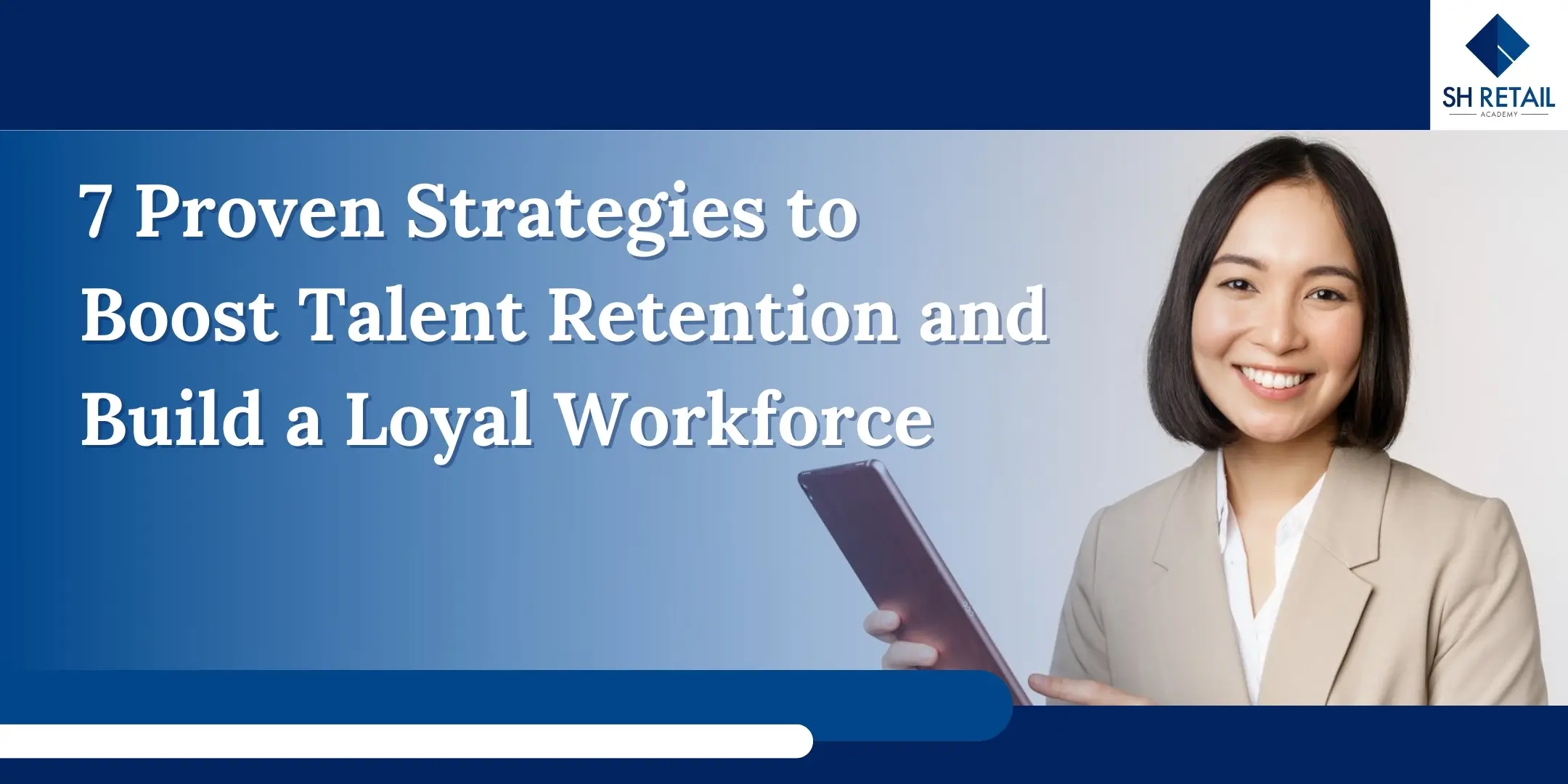
Retail Management

Woman hand using a laptop, smartphone and tablet and writing notebook at the office of her business online shopping. In home office
Introduction
Retailers face a growing challenge in keeping their frontline workers. Many employees are leaving their jobs, and even worse, leaving the retail management industry altogether. Studies show that nearly half of retail employees are thinking about quitting within six months. This high turnover not only creates extra costs for hiring and training but also disrupts store performance and customer satisfaction.
So, what can retailers do to keep their employees and build a strong, loyal team? Here are some simple but effective strategies.
1. Help Workers See a Future
One major reason employees quit is the lack of career growth. Many feel their jobs are just temporary, with no chance to move up or improve their skills. To address this, retailers should focus on creating opportunities for growth. This includes:
- Offering clear training programs for new and experienced workers.
- Showing employees a clear path to promotions or better roles.
- Encouraging workers to learn new skills, such as leadership or technology.
When employees feel like they can grow and achieve more in their jobs, they are more likely to stay. For example, a simple training program can teach cashiers how to handle more responsibilities, like inventory checks or customer complaints, giving them the confidence to aim for higher positions.
2. Pay That Reflects Hard Work
Money matters. One of the biggest reasons retail workers leave is low pay. Employees want to feel that their work is valued and that they are fairly compensated. Retailers can tackle this issue by:
- Regularly reviewing pay to ensure it matches or exceeds industry standards.
- Offering performance bonuses or incentives to reward hardworking staff.
- Providing benefits like discounts, health insurance, or paid leave.
Fair pay not only keeps workers happy but also motivates them to perform better. For example, offering a small bonus for meeting sales goals can make employees feel appreciated and encourage them to stay longer.
3. Build Strong Leadership
Good leadership can make or break an employee’s experience. Workers want managers who care about them, listen to their concerns, and support their efforts. Unfortunately, poor management is a common reason for high turnover in retail management. To improve leadership, retailers should:
- Train managers to handle conflicts fairly and listen to employee feedback.
- Encourage managers to motivate their teams with praise and recognition.
- Focus on building trust between managers and employees.
A manager who supports their team can create a positive work environment where employees feel respected and valued. For example, something as simple as thanking workers for their efforts during busy seasons can go a long way in building loyalty.
4. Offer Flexibility and Balance
Today’s workers value flexibility. Long hours, unpredictable schedules, and a lack of work-life balance are common complaints in retail jobs. Retailers can improve retention by making schedules more flexible, such as:
- Allowing employees to swap shifts or adjust their hours.
- Providing consistent schedules so workers can plan their lives better.
- Offering part-time options for those who need it.
Flexibility shows employees that their personal lives are respected. For instance, letting an employee adjust their shift to attend a family event can build goodwill and loyalty.
5. Create a Positive Work Environment
People want to work in a place where they feel happy and supported. A stressful or toxic environment pushes workers away. Retailers can foster a better workplace by:
- Promoting teamwork and collaboration among employees.
- Celebrating achievements, both big and small, to boost morale.
- Addressing workplace conflicts quickly and fairly.
A positive atmosphere not only keeps workers satisfied but also improves customer service, as happy employees are more likely to go the extra mile for customers.
Why Talent Retention Matters
When employees leave, the cost of hiring and training replacements can be high. Even worse, constant turnover hurts team morale and disrupts daily operations. Stores with stable teams often perform better because employees are experienced and familiar with the work.
By focusing on growth, fair pay, strong leadership, flexibility, and a supportive environment, retailers can create a workplace where employees feel valued and motivated to stay. Retaining talent isn’t just about keeping costs low—it’s about building a loyal and skilled workforce that drives success.
Investing in employees is not just good for them—it’s also good for business. A strong, happy team is the foundation of a successful retail management.
Discover how the latest retail management trends and strategies can transform your business! Stay ahead in the evolving retail management landscape with insights to build a high-performing team and drive innovation in 2025 with our comprehensive retail management training program and Executive Diploma in Retail Management offers practical strategies and tools to help you build a high-performing team capable of navigating today’s dynamic retail landscape.
Written by Amir Ashraff
SHRA Corporate Trainer
Amir is a trainer from SH Retail Academy. His passion for teaching and business handling gives him a lot of experience in teaching, training, retailing, customer service and operation management.
Reference: How retailers can build and retain a strong frontline workforce in 2024
4,500 total views, 2 views today



Sorry, the comment form is closed at this time.